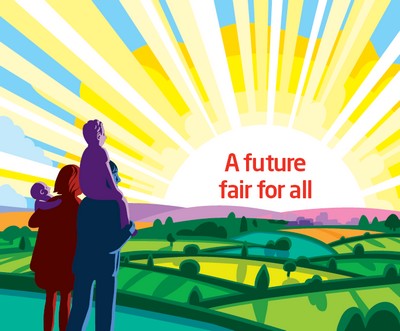Brand clarity and better listening
964 words | ~5 min
I was discussing earlier today some of the problems with measuring the clarity of brand propositions through quantitative research. Tracking whether or not people out there in the world 'get' your brand and its messages is very desirable, and therefore widely done.
The problem is, how do you know what to ask? One answer is to get the brand manager or agency planner to set the questions. Suppose you are responsible for Fizzy X, a low-sugar fizzy drink brand that is targeted at the premium end of the (low-sugar) fizzy drinks market, and whose advertising positions it as the perfect choice of fizzy drink for young high-income twenty-something urban professionals who strive to get the most out of life. (Before you say it, no, you'd not be the only brand to have seized upon this idea, and yes, there are lots of problems with it as a positioning.) How do you test whether all this is getting through to people? Some of the statements you might ask respondents to agree/disagree with are fairly unproblematic: 'Fizzy X represents value for money'; 'Fizzy X tastes good'; 'Fizzy X is low in sugar'; 'Fizzy X is good for you'; etc. These questions can also quite easily be asked of other brands within the category (e.g. Bubbly Y and Zippy Z) for comparison.
How do you test all that stuff about high-flying twenty-somethings, though? Planners and marketers tend to call these 'extrinsics' - elements of the brand that are not strongly connected to the realities of the product or service. Marketing surveys often come straight out and asking for agreement/disagreement with statements designed to test awareness of these extrinsics. So you might see a survey for Fizzy X which includes the statement 'Fizzy X is for young people', or 'Fizzy X is for people who are going places', or even 'Fizzy X gives me confidence'. Sometimes these questions will be asked only of Fizzy X. Sometimes they will form part of a list of extrinsic questions derived from a marketer/researcher's perceptions of all the brands in the category, with each question asked for each brand. So, if Fizzy X's positioning is very up-and-coming and Bubbly Y's positioning is very sports-heavy, the survey might include the statements 'This brand is associated with sport' and 'This brand is for people who are going places', with no prizes for guessing which brand is likely to score highest on each measure.
Here's the problem. Even the least thoughtful consumers are likely to think about price, packaging, and maybe other intrinsics like health benefits when choosing between brands. They are likely to have reasonably clear views on intrinsic statements like 'This brand offers good value for money'. Honestly, though, when faced with a statement like 'This brand is for people who are going places', most of us will not have thought about it for most brands. (The brand managers of the world will be lucky if most of us carry these thoughts around for more than a few categories - cars, for instance, and certain categories of fashion. The extent to which extrinsic thoughts are attached to different categories is itself an interesting question - why can we associate a brand of car or watch or spirits to James Bond, but not a brand of baked beans or window cleaner?) The problem is made worse by the fact that the statements are devised by market researchers and brand managers, people who spend all day thinking about their brands and their personalities.
Ask people to respond to extrinsic brand statements (for which they have no ready answer) in the same way as they respond to intrinsic ones (for which they do) and they will assume they should have a ready answer. They will answer under a sort of mental 'exam conditions' in which an 'erm, I suppose' becomes a 'yes, absolutely', and an 'erm, I never thought about that' becomes a 'no, absolutely not'. This is a recipe for either happy brand managers or unhappy ones when they get the research back, whereas what the brand managers deserve to be is unclear, none the wiser, feeling much like respondents generally feel about their brands. These researched statements may give options for levels of agreement ('agree strongly', 'agree', 'unsure', etc.), but I've yet to see one with an extra box marked 'Who bloody cares? It's only a fizzy drink.' This seems an unfortunate omission.
So here's a thought. Rather than relying on brand managers and planners, briefs and brand manifestos to come up with brand clarity statements and questions, why not base them in part on what people are already saying about your brand out there in the real world? As what is said in social media becomes increasingly reflective of the breadth of good and bad things people have to say about brands (and about everything else), social media intelligence becomes an increasingly useful and sophisticated tool for measuring brand clarity, just as it is for measuring awareness and sentiment. Good monitoring might reveal, for example, that a lot of people in your target market talk about Fizzy X as the drink of choice for vulgar acquisitive rich kids that nobody really likes. Since this is rarely the kind of thing that brand managers and planners want to admit to themselves, the statement 'I hate people who drink this brand' may not have made it onto the survey, but maybe it should.
The idea of 'brand clarity' supposes that brands are best understood by their originators. Better monitoring may reveal not only areas of unclarity, but fundamental divides between in-house perceptions and those of the public, and may even imply that the guardians of the brand are the ones whose perceptions are in the minority.
# Alex Steer (22/06/2010)
